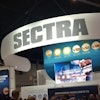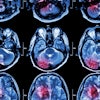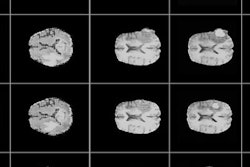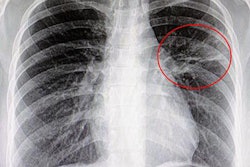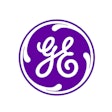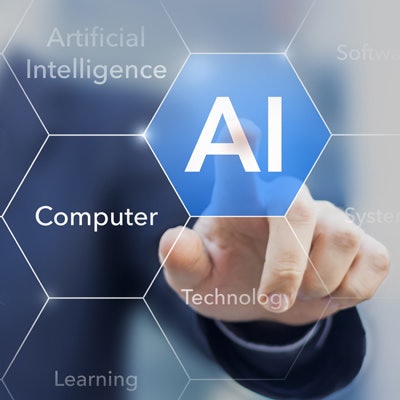
An artificial intelligence (AI) algorithm can be highly sensitive and specific for identifying acute findings on abdominal CT scans enabling radiologists to prioritize reading of those urgent exams, Swiss researchers reported in an article published online on 7 September in Investigative Radiology.
Researchers led by Dr. David Winkel of the University Hospital Basel recently evaluated a commercial deep-learning algorithm designed to detect free gas, free fluid, and mesenteric fat stranding on abdominal CT studies. In testing on nearly 200 cases, they found the algorithm yielded 93% sensitivity and 97% specificity for spotting these acute abdominal CT findings.
"The algorithm's autonomous detection of acute pathological abdominal findings demonstrated a high diagnostic performance, enabling guidance of the radiology workflow toward prioritization of abdominal CT examinations with acute conditions," the authors wrote.
 Dr. David Winkel of the University Hospital Basel.
Dr. David Winkel of the University Hospital Basel.Currently, identification of truly urgent abdominal CT cases in the radiological worklist is suboptimal. While approximately 40% of all inpatient imaging exams are designated by referring physicians as needing immediate attention, only a fraction of these studies wind up needing prompt communication and therapeutic workup, according to the researchers. The time from patient admission to initiation of surgery is a major determining factor in survival in patients with gastrointestinal perforations, however, so it's critical to recognize these cases as early as possible.
"To address this challenge, one possible solution is to use deep-learning algorithms to detect suspicious findings after acquisition of the raw data and to highlight these specific studies in the work list," the authors wrote. "Such computer-aided detection systems could potentially assist radiologists in detecting visual abnormalities while minimizing both false-positive and false-negative prioritization."
As a result, the researchers investigated the capability of a deep learning-based triage software application -- version 1.4 of the Aidoc Acute-Abdomen Package (Aidoc Medical) -- for identifying acute findings on abdominal CT scans. They first used a RIS/PACS search engine to find 100 control cases and 100 consecutive abdominal CT exams with at least one acute abdominal CT finding. A total of 194 cases were ultimately included in the analysis after six were excluded due to technical problems.
The algorithm, which is based on a deep convolutional neural network, was then used to analyze the CT data.
| AI algorithm's diagnostic performance for acute abdominal CT findings | ||||
| Intra-abdominal free gas | Free fluid | Fat stranding | Overall | |
| Sensitivity | 54/59 (92%) | 68/80 (85%) | 42/50 (81%) | 91/98 (93%) |
| Specificity | 39/42 (93%) | 20/21 (95%) | 48/49 (98%) | 93/96 (97%) |
The researchers noted the false-positive results were attributed to streak artifacts, partial volume effects, and a misidentification of a diverticulum.
They concluded the algorithm showed high diagnostic accuracy for autonomous detection of pathological abdominal findings.
"In future applications, the algorithm could be able to support the radiology workflow by flagging suspicious cases in the work list," the authors wrote. "This approach may be expanded to other critical findings, and detected findings can be relayed to clinical departments immediately thus potentially reducing time to therapy and time to report completion."
